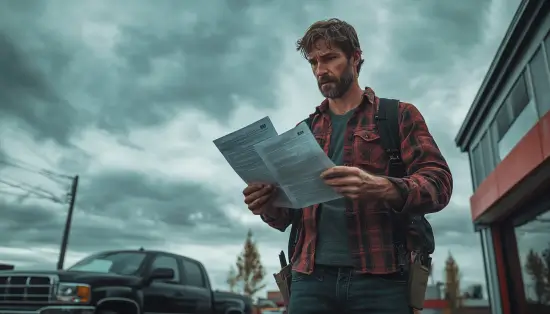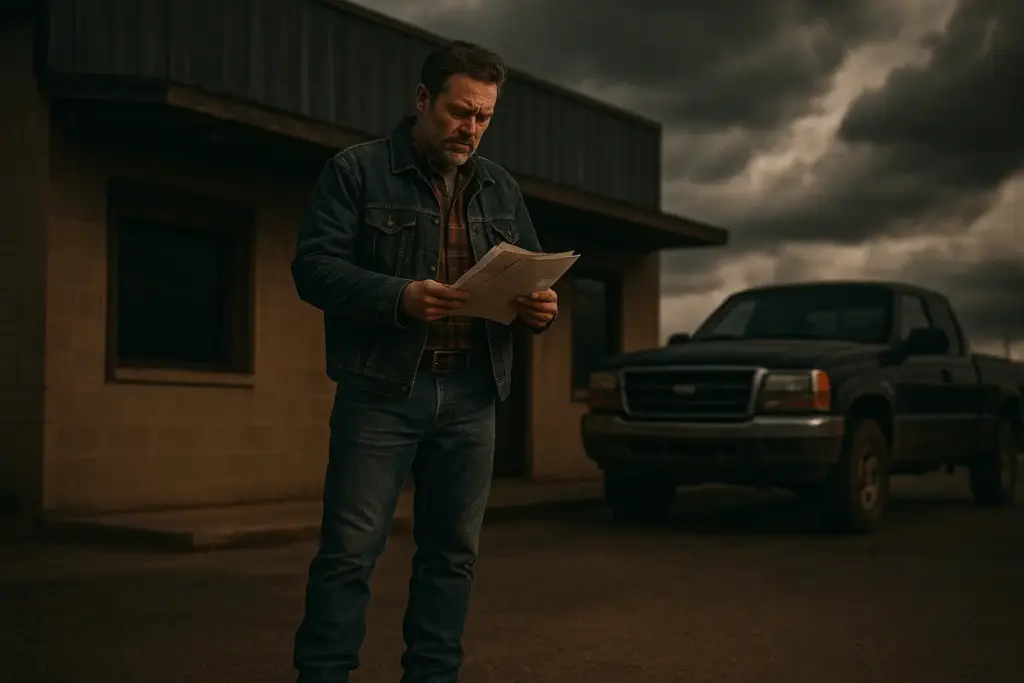Why A Commercial Umbrella Policy Isn’t Set-It-and-Forget-It

Updating commercial umbrella insurance might not feel urgent—until your local advisor brings it up over coffee and asks, “When’s the last time we reviewed this?”
That’s exactly what happened to Brian, a small business owner juggling staff schedules, client meetings, and everything in between. His insurance advisor—someone he’s trusted for years—scheduled a quick policy review. “Just want to make sure you’re not exposed in ways you don’t realize,” she said.
At first, Brian figured things were fine. After all, he hadn’t filed a major claim in years. But as they walked through his current coverage, a few things stood out. His business had grown. He’d taken on higher-value contracts. His team had expanded, and he’d added more equipment and vehicles over the past year. Suddenly, that old umbrella policy looked like a hand-me-down that no longer fit.
That conversation didn’t just save Brian from potential gaps—it gave him peace of mind.
Here’s the truth: your commercial umbrella policy isn’t supposed to stay frozen in time. Your business is in motion, which means your protection should be too. A quick review before a problem happens is always better than scrambling after.
In the next few sections, we’ll show you exactly when updating commercial umbrella insurance makes sense—so you can protect what you’ve built, without the guesswork.
Business Growth Brings Bigger Risks

Success has a way of changing the rules—especially when it comes to insurance.
Let’s say your business started with just you, a truck, and a dream. Fast-forward a few years, and now you’ve got ten employees, a storefront, and a steady stream of jobs. That’s the kind of progress any business owner should be proud of. But here’s what most don’t realize: the more you grow, the more you have to lose.
With each new hire, asset, or revenue milestone, your potential liability grows too. A customer injury, a lawsuit over a subcontractor’s mistake, or property damage caused by one of your vehicles could quickly blow past the limits of your base policies. That’s where your umbrella policy steps in—if it’s still aligned with your business.
This is one of the most common blind spots small business owners face. The original umbrella policy you picked up when business was smaller might not come close to covering today’s exposure. And if you haven’t had that conversation in a while, you could be operating with outdated protection.
That’s why updating commercial umbrella insurance after growth isn’t just a paperwork exercise—it’s a practical way to match your coverage to your reality.
Here’s when to hit pause and reassess:
- Your revenue has doubled (or more) in the last 2–3 years.
- You’ve expanded services or added new job types that carry different risks.
- Your payroll has grown, especially if you’ve taken on more manual labor roles or field staff.
- You’ve taken out loans or leased equipment that would increase your financial exposure in a lawsuit.
Each of these shifts signals that it’s time to update—not out of fear, but out of preparation.
Remember, your umbrella policy is meant to catch what slips through the cracks of your other coverage. But if the net hasn’t been widened to match the growth, it might not hold when you need it most.
The good news? This kind of update isn’t complicated. It starts with a quick check-in with someone who knows your business and knows what questions to ask. A few small adjustments now can make a massive difference later.
New Contracts or Clients That Shift Liability
Big opportunities often come with big expectations—especially when a contract lands on your desk with fine print that makes your stomach turn.
Let’s say you’ve finally landed a deal with a major client, maybe a local government agency or a national chain. They love your work, but before anything gets signed, their legal team sends over a contract packed with insurance requirements: higher liability limits, added endorsements, and proof that you’ve got more than just basic coverage.
This is where things get tricky.
What many business owners don’t realize is that these contract clauses don’t just impact your base policies—they often extend into your umbrella coverage too. And if your policy hasn’t been reviewed in a while, it may not meet the thresholds your new client expects. That puts you at risk of losing the deal—or worse, being held responsible for claims you thought were covered.
Updating commercial umbrella insurance isn’t just about protecting yourself. It’s also about protecting the deals you’ve worked hard to earn.
Here’s what to watch for:
- Higher liability limits required by contract, especially for government, healthcare, or construction clients.
- New industry regulations that affect your line of work or geographic area.
- Hold harmless or indemnity clauses that shift more responsibility to you.
- Multiple subcontractors or partners who introduce shared liability.
If any of these show up in your next big deal, that’s your cue to get your advisor on the phone and walk through your policy line by line.
This isn’t just about meeting someone else’s checklist. It’s about making sure that if something goes wrong—and in business, something always does—you’re not stuck footing the bill for a claim that exceeds your current limits.
A smart review before signing a contract could save you time, stress, and serious money later.
So when you land the next “big one,” celebrate—and then schedule a quick call to talk about updating commercial umbrella insurance. Because the right protection helps keep the opportunity, and your business, secure.
Changes in Assets, Vehicles, or Locations
When your business grows, it often leaves a trail of paperwork, purchases, and property behind it. What started as a one-location operation with a few tools can quickly expand into something far more complex: multiple buildings, expensive equipment, a growing fleet.
And every time you add something new, your liability picture shifts.
Let’s say you’ve recently leased a second location, picked up a new commercial vehicle, or invested in high-dollar equipment to take on bigger jobs. These upgrades are great for business—but they also bring higher stakes if something goes wrong.
More assets mean more exposure. If an accident damages your new gear, or if a delivery van is involved in a multi-vehicle crash, your liability could go far beyond the limits of your standard policies.
That’s why updating commercial umbrella insurance after adding physical assets isn’t just a formality—it’s a way to protect everything you’ve worked for.
Here are a few red flags that should prompt a review:
- Opening or relocating to a new building, whether it’s an office, shop, or warehouse.
- Buying or leasing new vehicles, especially if you’ve expanded your service area.
- Investing in specialized tools or equipment that would be costly to replace—or could cause major damage if misused.
- Renovations or tenant improvements that increase property value or add new risks.
The challenge? Many of these changes happen gradually. You make a few updates here and there, not realizing that your total exposure has doubled. But if your umbrella policy is still based on last year’s balance sheet, that gap could come back to haunt you.
Taking a moment to review your coverage now could save you from major gaps in the event of a claim. This is especially true if you’ve taken out financing or signed a lease that includes strict liability terms.
Your umbrella policy should scale with your operation. So when your footprint expands, your coverage needs to follow.
The fix doesn’t need to be complicated. A quick call with your local advisor can make all the difference. They’ll help you assess whether updating your commercial umbrella insurance is necessary—and if it is, what adjustments are needed to close the gap.
After a Claim or Industry Shake-Up
There’s nothing like a claim—or seeing someone else go through one—to make you question what your policy really covers.
Maybe a vendor you know just got hit with a lawsuit that wiped out their general liability limits. Or a neighboring business faced a six-figure settlement after a customer injury. In moments like that, every small business owner thinks the same thing: Would my policy have handled that?
If you’ve recently filed a claim or watched someone else get blindsided by one, it’s the perfect time to take a hard look at your umbrella coverage. Because those events don’t just raise your awareness—they expose the parts of your business that are most vulnerable.
Updating commercial umbrella insurance after a claim isn’t about being reactive—it’s about learning from real-world consequences and adjusting before it’s your turn under the spotlight.
Here’s where business owners often get caught off guard:
- You hit the liability cap on a base policy, and your umbrella didn’t fully close the gap.
- The incident revealed exclusions you didn’t realize were there.
- Defense costs weren’t covered the way you thought they would be.
- The legal landscape changed, making you more vulnerable to certain types of claims (like cyber or employment-related lawsuits).
And sometimes, it’s not even your own claim that serves as the wake-up call. A competitor’s misfortune or a high-profile incident in your industry can be just as powerful. That’s when smart owners pick up the phone and schedule a check-in with their advisor.
Even the best policies age fast. New regulations, shifting case law, and evolving risk profiles can all make a once-solid policy outdated. That’s why checking in after a major claim—or even a close call—isn’t just good business. It’s responsible leadership.
Remember, the point of umbrella coverage is to catch what your other policies can’t. But if it hasn’t been adjusted to reflect recent claims history or legal changes, that safety net might have holes you can’t see.
Taking time now to revisit your limits, exclusions, and real-world exposures is one of the smartest steps you can take. With a quick review, updating commercial umbrella insurance becomes less about fear and more about control—about knowing your protection matches the world you’re operating in today.
Protection That Keeps Up With Your Business
You’ve worked hard to build something solid—don’t let outdated coverage chip away at that security. Whether you’ve expanded your team, signed new contracts, upgraded equipment, or simply want peace of mind after a claim, one thing is clear: your coverage should grow with you.
Taking the time to review and update your policy isn’t about checking a box. It’s about protecting the lifestyle, the business, and the future you’ve built. With just one conversation, you can make sure your limits still fit, your exposures are covered, and there are no hidden surprises waiting down the line.
If it’s been a while since you reviewed your coverage, now’s the time. Talk with someone who gets your business and can offer real, no-fluff advice. For straightforward guidance and support with Commercial Umbrella Insurance, reach out to a local advisor who puts your protection first.
Because in business, the best problems are the ones you never have to deal with.
